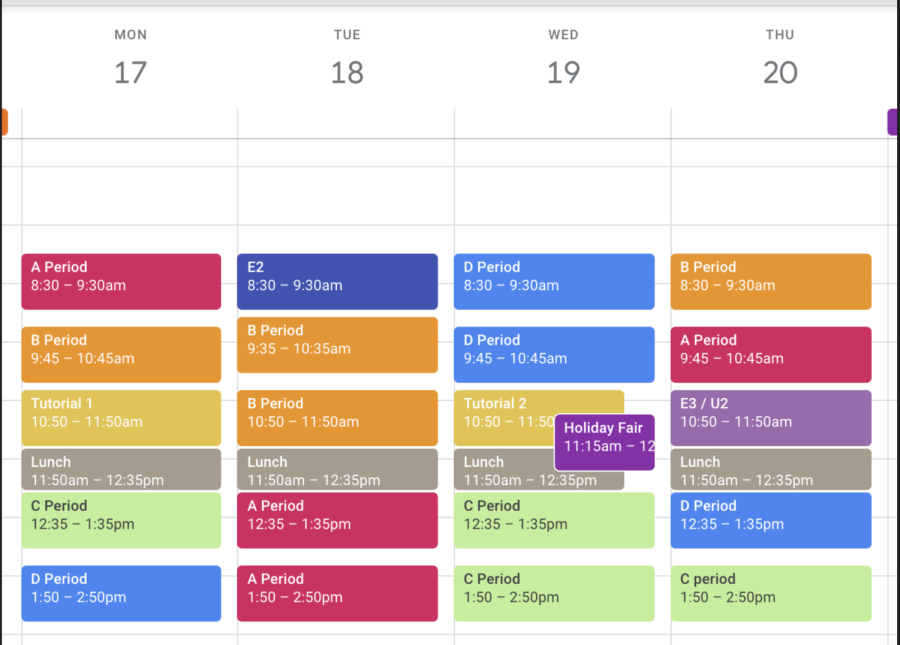A look into the history and future of Urban’s four day weeks
On January 18, the Urban School piloted a new four-day week schedule, a change that was enacted due to community concerns over homework load. Jessica Yen, Urban’s academic dean, said, “especially given this fall term with so many four-day weeks, there was a lot of talk for both students and faculty about how exhausting or unsustainable the schedule was.” Unlike five-day week schedules, Urban’s four-day week schedule had four classes meeting on Day One and Day Four of the week.
Geoff Ruth, an Urban science teacher, and the previous academic dean said that since coming to Urban in 2005, there have been three versions of the four-day schedule. Yen said that the original four-day schedule (before fall 2015) had three classes meet every day of the 4-day week. “It was very rhythmic,” she said.
Ruth said, “we tried to eliminate having four classes at once.” However, this schedule was met with many complaints. Ruth explained that there were two main critique points for this schedule. “There [were] too many transitions in a day, meaning that you have to move between too many things; A period to advising to B period to [lunch] to C period.”
Additionally, Yen said, “there were no double periods. Instead, there were these 105-minute blocks, where teachers were allowed to choose when the break was okay. This idea of teachers choosing when the break was was confusing.” On top of the many transitions and out-of-sync breaks, Yen said, “there was always homework from three classes due every single day.”
These concerns led the Program Innovation Committee to switch to a 4-2-2-4 schedule. “It takes a while for us to feel out the kinks of any new schedule,” said Yen. “[In] the last two years, we really haven’t had a normal schedule because you are constantly changing schedules with Virtual Urban, [normal] Urban and hybrid Urban.” In an effort to limit students’ workloads and have fewer transitions in a single day, the new 4-day pilot schedule has eight double periods a week. Because this new schedule is quite different from previous 4-day week schedules, Yen released a survey for students to share their thoughts. Responses from this survey varied. “Some students will do better with shorter periods of time of instruction,” said Yen, “whereas for some classes that are very project-based it’s really helpful actually to have more double periods.” “[However,] the overwhelming response was that people like the pilot schedule,” Yen said. Based on the survey, this support for the pilot schedule is not a response to more double periods, but rather a response to the reduced homework load.
This strong emphasis on workload in students’ responses, Yen said, “highlights the need for us to take a closer look at the homework load.” Yen said that week eleven of the winter term had the Fall 2021 4-day schedule, but with the caveat that teachers could only assign two homework assignments a week, with homework being due either day one or day three, but not both. “The feedback showed that while people really really liked the homework load of the present schedule, many also still prefer the length of class time in the original 4-day schedule,” Yen said.

